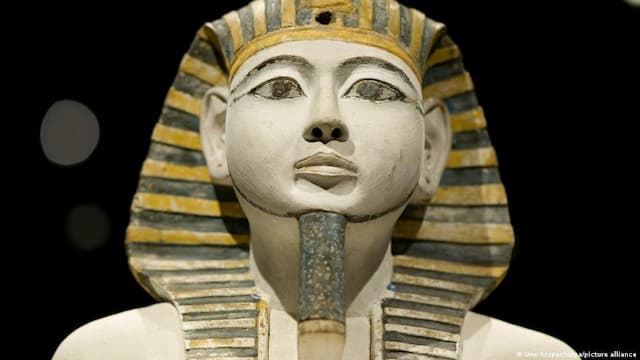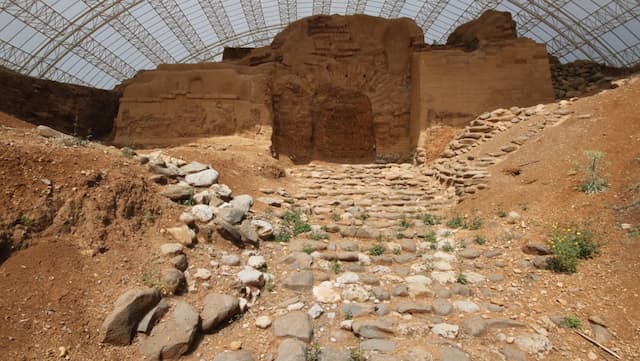God’s kingdom and the church
What’s God’s vision for the church? Is your church demonstrating communal life as our king desires?
What’s the connection between the kingdom of God and the church?
The two are almost the same for Catholics, since Christ gave “the keys of the kingdom” to Peter. Many people are not impressed. “Jesus foretold the kingdom, and it was the Church that came …” So said Alfred Loisy, 6 years before the Catholic Church used “the keys” to excommunicate him.
For others, there’s little overlap between church and kingdom. In The Princeton Theological Review (1927:1, 92), Louis Berkhof described the kingdom as entirely future:
God himself establishes the Kingdom at the end of the age in a catastrophic way. Even the idea that Jesus came to found the Kingdom and did actually establish it, is altogether mistaken.
If Berkhof was right, everything we’re doing in this blog is wrong: we’re reading the Gospels as if Jesus was being announced as king. Fortunately, Berkhof later acknowledged that “the Kingdom of God and the invisible Church are in a measure identical” while also distinct (Systematic Theology, Eerdmans, 1938, 569).
Most scholars today recognize that the kingdom is already here though not yet in its fullness: already, but not yet. The church is therefore a current (incomplete) expression of the kingdom of God on earth. But don’t imagine God’s kingdom is the church. God’s kingship extends over the whole creation, not only the community of those who acknowledge him.
In that sense, it the kingdom gives mission to the church. God’s mission is the restoration of the earthly realm into his governance. Unlike human rulers like Alexander the Great, God does not force people to submit or die. His Son was his peace message. He sent the Son to reconcile humanity with his kingship — out of oppression, back into his reign.
Jesus called himself son of man, but in John his primary identity is the one sent by the Father (John 4:34; 5:24, 30, 36, 37; 6:38, 39, 44, 57; 7:16, 28, 29, 3, 8:16, 18, 26, 29, 42, and so on). Jesus defined himself by his mission. It’s a kingdom mission, for his Father is sovereign.
Crucially, Jesus’ kingdom mission defines us too:
John 17:18 As you [Father] sent me into the world, I have sent them into the world.
John 20:21 As the Father has sent me, I am sending you.
The church doesn’t have a mission; the mission has a church. God’s mission to restore his kingship is embodied in a living community that submits to his reign. The church is:
- the present expression of communal life under God’s kingship, and
- the prototype community — what the world will be like when everyone recognizes to his kingship.
The church’s agenda is set by its king.
Does God’s vision for the church match what your church is doing? Do you aim to empower people to live kingdom-of-God realities in your community? Or do you aim for a good show each weekend so people want to come?
How do you inspire people? The best way is to tell stories of people who are doing kingdom stuff in your community. These stories are not illustrations — they’re living truth. When you gather on Sunday to sing praise to our king and to hear instruction on how he wants his kingdom run, interview that school teacher who is providing the king’s care for her children, or the lawyer who is bringing justice to those who regularly miss out.
Re-evaluate: are those church programmes helping your volunteers, or preventing them from doing the King’s work in the wider community?
God’s kingdom mission has a church — a community embodying life under his reign. It’s how we honour our king.
Ephesians 3:20-21 (my translation)
To the powerful one whose acts have super-exceeded what we requested or imagined, in accord with his regal power functioning among us, to him be grandeur in his community [church] and in King Jesus, for all the generations of his eternal reign! Let it be!
Let it be, indeed.
What others are saying
Christopher J. H. Wright, The Mission of God’s People: A Biblical Theology of the Church’s Mission, (Grand Rapids, MI: Zondervan, 2010), 272:
People don’t go to church on Sundays to support their pastors in their ministry. The pastor goes to church on Sunday to support the people in their ministry. And their ministry, the ministry that really counts as mission, is outside the walls of the church, in the world, being salt and light in the marketplace.
Every church should have a prominent notice over the inside of the door that people use to leave the church, “You are now entering the mission field.”
Alan Hirsch, Fast Forward to Mission: Frameworks for a Life of Impact (Grand Rapids, MI: Baker, 2014):
It is not so much that the church has a mission but that the mission has a church. … We really are the result of God’s missionary activity in the world: God sends (missio) his Son into the world. … Jesus says that as the Father sent him, so he sends and commissions each of us as fully empowered missional agents of the King (John 17:18; 20:21; Matt. 28:19).
Jurgen Moltmann, The Church in the Power of the Spirit: A Contribution to Messianic Ecclesiology, trans. Margaret Kohl (Minneapolis, MN: Fortress Press, 1993), 164:
Christianity does not exist for its own sake; it exists for the sake of the coming kingdom. Christians look forward to this kingdom as the future of the whole of creation; and so they can only prepare for it together with other people. For Christianity’s hope is not directed towards ‘another’ world, but towards the world as it is changed in the kingdom of God. Christian ideas about the goal of the world processes therefore do not simply belong to social ethics, either; they are a part of Christianity’s comprehensive mission in history for the kingdom. The church does not understand itself if it does not understand its mission in this world process and its hope for this world process.
[previous: God’s kingdom and Israel today]
[next: God’s kingdom and salvation]
Seeking to understand Jesus in the terms he chose to describe himself: son of man (his identity), and kingdom of God (his mission). Riverview College Dean
View all posts by Allen Browne











